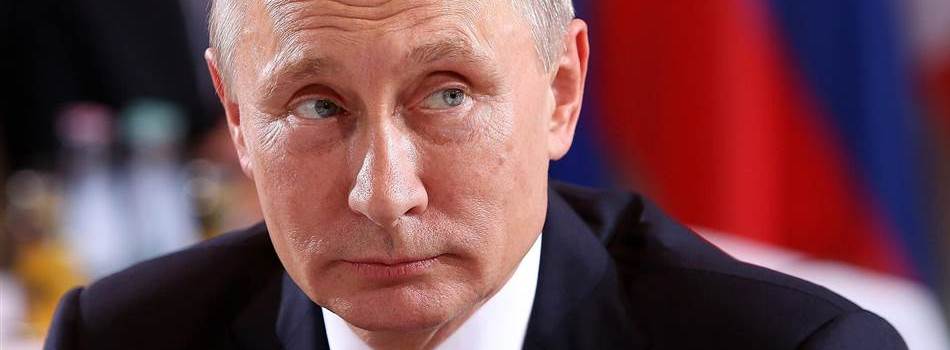Vladimir Putin was sworn in as Russia’s president for a fourth term on Monday, extending his almost two-decade rule by another six years at a time of high tension with his Western rivals.
The 65-year-old, in power since 1999, is on course to become the longest-serving Russian leader since Joseph Stalin after his victory in March’s elections.
Putin won nearly 77 percent of the vote in polls in which his most vocal opponent was banned from running.
He has promised to use his fourth term to revitalise the country’s economy. But he also faces a host of delicate international disputes.
“I consider it my duty and my life’s aim to do everything possible for Russia, for its present and for its future,” Putin said at Monday’s swearing-in ceremony, with his hand on the Russian constitution.
Several thousand guests lined the red carpet and filmed Putin on their smartphones as he arrived for the swearing-in ceremony in the ornate Andreyev Hall, part of the Kremlin palace complex.
Among them were US action star Steven Seagal, who has taken up Russian citizenship as well as former German chancellor Gerhard Schroder and Naina Yeltsina, the widow of Putin’s late predecessor Boris Yeltsin.
The car that brought him to the inauguration was a black Russian-made limousine — a change from previous ceremonies when he used a German Mercedes.
“I feel strongly conscious of my colossal responsibility,” he said, thanking Russians for their “sincere support” and “cohesiveness.”
“We have revived pride in our fatherland,” Putin said.
“As head of state I will do all I can to multiply the strength, prosperity and fame of Russia.”
Shortly after the ceremony, Putin asked parliament to back a new mandate for outgoing prime minister Dmitry Medvedev, his long time ally, in a move that suggested continuity.
– Crackdown on opposition –
Opposition leader Alexei Navalny called on Russians to protest across the country on Saturday under the slogan “Not our Tsar”.
On Saturday nearly 1,600 protesters including Navalny were detained during nationwide rallies against Putin. Navalny has been released pending a court hearing.
The unrest revived memories of 2012, when authorities cracked down on rallies against Putin’s return to the Kremlin from the post of prime minister.
Navalny was barred from challenging Putin in the March election over a fraud conviction that his supporters say is politically motivated.
– Strained ties with West –
Russia’s ties with the West have been strained by Putin’s moves to annex Crimea from Ukraine and to launch a military campaign in Syria in support of long-time Russian ally President Bashar al-Assad.
In recent months relations have soured further over accusations of the poisoning of an ex-spy in Britain and of election meddling in the US.
“For Putin any concession is a sign of weakness, so there shouldn’t be any expectation of a change in foreign policy,” said Konstantin Kalachev, the head of the Political Expert Group think tank in Moscow.
But independent political analyst Dmitry Oreshkin said the president may find himself obliged to shift his approach to the international community over the next term.
“Russia hasn’t been so isolated since the Soviet war in Afghanistan” from 1979 to 1989, he told AFP.
“Now his task isn’t to bring any new lands to Russia, but to force the world to consider Russia’s interests and accept its previous conquests.”
Reports that Alexei Kudrin — a liberal former finance minister who is respected abroad — could return to the Kremlin in a reshuffle, suggest the president could be seeking a less confrontational approach.
The constitution bars Putin from running again when his fourth term ends in 2024. But he has remained silent on the issue of his succession.
Some Muscovites said Monday that they would back Putin as president for life.
“If a leader defends his country’s interests, then let him govern until the end of his days,” said Maxim Kuznetsov, a courier.
Driver Maxim Yermolayev said that, “for a good president, I think that even 30 years (in power) is not enough.”
– Economic woes –
Putin has promised to use his fourth term to improve Russians’ standard of living.
“People will live better,” he said.
A new poll by Russia’s independent Levada Center found that while the majority of Russians support Putin’s foreign policy, the main complaints are over the economy.
The survey showed 45 percent of Russians believe Putin has not been able to achieve a “fair distribution” of state revenues to benefit ordinary people.
Russian businesses are expecting wide-ranging reforms in a system of government that is heavily bureaucratised.
According to statisics published in the RBC newspaper on Monday, the number of bureaucrats during Putin’s third term rose by 50 percent, from 1.57 million to 2.17 million.
Putin has struggled to revive an economy that crashed after Moscow was hit with Western sanctions over Crimea and by a fall in global oil prices.
AFP





